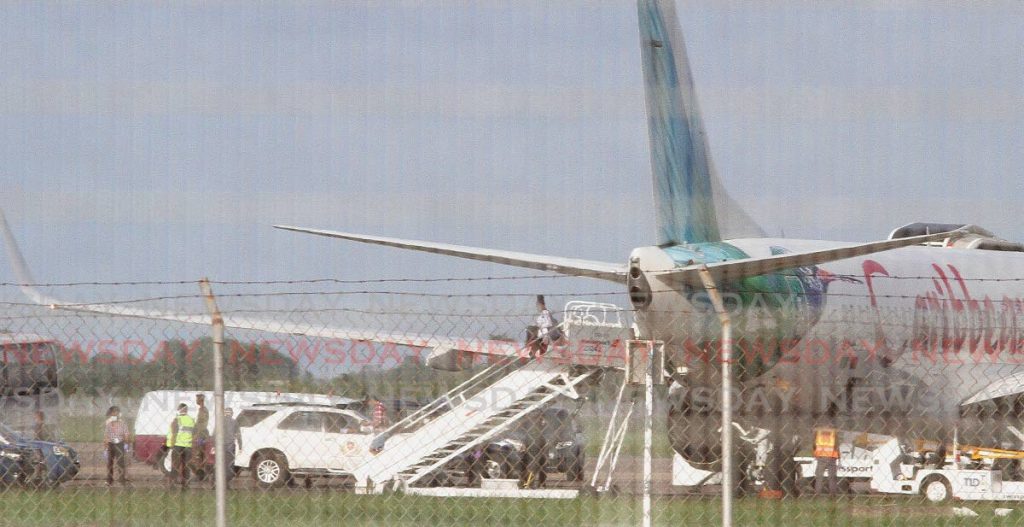Borders reopen on July 17 for vaccinated nationals, foreigners

FROM July 17 Trinidad and Tobago will be welcoming home nationals and foreigners once again after its borders were closed on March 22 last year to block the importation of the covid19 virus.
Non-nationals and foreigners must be fully vaccinated with World Health Organization (WHO)-approved vaccines administered at least two weeks before entry. They must also present a negative PCR test,not older than 72 hours before arrival, and will be allowed to go home with their children.
Foreigners who are not vaccinated will not be allowed to enter.
Nationals who are not vaccinated must also have a negative PCR test, taken within the last 72 hours, and must remain in quarantine at a designated hotel at their own expense for 14 days under state supervision.
Passengers will be able to upload this information via an app when booking their flight similar to what is being used in other Caribbean countries.
Speaking at the Diplomatic Centre, St Ann’s on Saturday, the Prime Minister, after weeks of hinting about the re-opening of the borders, gave clear details on how it will be done.
This opening of the borders will scrap the exemption system which was put in place in March last year for nationals who wanted to return home.
People trapped in other countries had complained for months that their applications for exemptions were not approved for months by the Minister of National Security because there was insufficient space to keep them in quarantine, the unavailability of flights, and in some instances there was no acknowledgement of their applications.
People who try to avoid mandatory state quarantine will face heavy penalties, according to the Prime Minister.
He also said the construction sector for government projects will restart on July 5 and other sectors of the economy will follow once cases continue to decline.
“I spoke with the authorities about the penalties for coming in unvaccinated and attempting to beat the system and not going into state supervised quarantine. I am going to talk to the Attorney General to ensure that those penalties are a deterrent and that the law enforcement will keep a close eye on that.”
The issue became a political matter as the Opposition claimed the Government's refusal to allow nationals to come home was an act of discrimination.
To resolve the bureaucratic process of applying for exemptions, the National Security Ministry created an online application platform in January which was more transparent. In the last public figure given in January, the Ministry of National Security said 12,338 exemptions had been granted and the majority of the nationals who were stuck overseas when the border was closed were now back home.
On Saturday, Dr Rowley said the downsizing of the national airline Caribbean Airlines will not affect its ability to bring people to this country. He said with a 25 per cent cut in the workforce, CAL is still able to meet its demand.
Last Monday, CAL said it will be retrenching 450 workers and reducing its fleet from 19 to 13 aircraft, comprising eight jets and five ATR turboprop planes, used mainly for the the domestic airbridge.
While he acknowledged the seriousness of the latest variant of the virus, the delta variant ravaging parts of Europe and Australia, the Prime Minister did not ban the entry of passengers coming from those countries.
“In allowing the opening of the borders to come about we did have a categorising of low- and high-risk countries. We found that there were so few countries that could be categorised as low-risk, given what is happening around the world now. At the very beginning of the covid challenge we started out by saying coming from China, no go for 14 days, then we expanded it to those coming from Europe, and then closing the border against all comers. If we do have that requirement we will, but at the moment we are just watching it.”
The anticipated reopening of the construction sector on Monday was bittersweet as only government construction will be allowed to restart.
On June 19, Rowley said once positive cases continued on a downward trend then the construction sector would resume.
On Saturday, he said while the numbers are dropping, it was advisable not to open up too quickly. With the construction sector, all ancillary sectors such as aggregate mining, hardware and others will also be reopened.
On June 19, Rowley also said the balancing of lives and livelihoods will now be focused on livelihoods as more vaccines become available, saying the manufacturing sector will be next in line to be reopened.
“We have not done too badly, we have not worsened our position, but we have not accelerated to the point of comfort that we would like to have been. We have come into a reasonably good place, where we act on only these parameters where we can take the decision to relax a bit.”
Rowley added that to open up other sectors will be taking a gamble which can reverse the downward trend of positive cases that may force the government to take harsher actions than already done. He said the Government decided to hold on a bit longer before reopening to be in a “stronger position” not to revert.
Last month the Government instituted a state of emergency with a weekly curfew from 9 pm-5 am and a weekend curfew beginning two hours earlier. The weekend curfew hours will revert to the weekday hours from this weekend.
All beaches, outdoor sporting activities, gyms, sale of street food along with restaurants and bars have been closed along with cosmetic businesses and all educational facilities from daycares to universities.

Comments
"Borders reopen on July 17 for vaccinated nationals, foreigners"